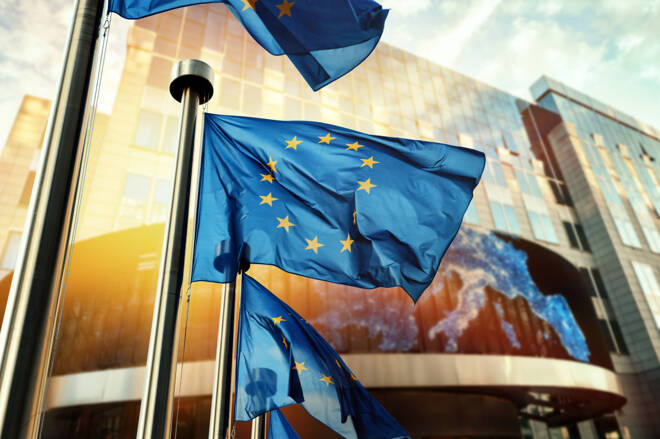Advertisement
Advertisement
German Wholesale Inflation Softens to Signal a Further CPI Retreat
By:
German wholesale inflation numbers declined in December, a favorable result for the ECB. Next up, ECB President Lagarde and the ECB Research Bulletin.
It is a busy start to the week on the euro area economic calendar. German wholesale inflation numbers drew interest this morning. Recent inflation reports from the euro area have supported the market view that inflationary pressure is receding from the October peak of 10.7%.
As a leading indicator of consumer price inflation, softer wholesale price index numbers would support a continued softening in German inflation. Germany’s wholesale inflation peaked in April 2022, with an annual wholesale inflation rate of 23.8%.
In December, the German wholesale inflation rate softened from 14.9% to 12.8% versus a forecasted 13.3%.
According to Destatis,
- Prices for raw materials and intermediate products were the main contributors to the high annual rate of change.
- Solid fuels were up 82.3% compared with December 2021, with living animals up 47.6%.
- However, mineral oil products (+22.8%) had the most marked impact on the annual rate of change in December.
- In November and October, the annual rates of change had been +14.9% and +17.4%, respectively.
- Month-on-month, the wholesale price index fell by 1.6% versus a forecasted 1.2% decline. The Index fell by 0.9% in November.
Today’s wholesale inflation numbers aligned with the December manufacturing PMI survey. According to the December survey, the rate of input cost inflation fell markedly to its weakest in over two years, supported by a fall in demand for inputs contributing to an easing of supply chain pressures. Factory gate prices also saw a sharp fall to a 22-month low.
EUR/USD Price Action
Ahead of the German wholesale inflation numbers, the EUR/USD fell to a pre-stat low of $1.08204 before rising to a pre-stat high of $1.08743.
In response to the wholesale inflation figures, the EUR/USD rose to a post-stat high of $1.08426 before falling to a post-stat low of $1.08357.
At the time of writing, the EUR was up 0.05% to $1.08373.
Up Next
With the economic calendar on the busier side, ECB member commentary also needs monitoring. ECB President Lagarde and Mr. Panetta will speak at the Eurogroup meeting in Brussels. The ECB will also release the Research Bulletin, which will likely draw interest.
The Research Bulletin considers a selection of recent work on policy-relevant topics by ECB economists and is published monthly.
While it is a busy European session, it is a quiet day ahead on the US economic calendar, with the US markets closed. The lack of US economic indicators would leave FOMC member commentary in focus.
Hawkish chatter would test the market bets of a 25-basis point Fed interest rate hike.
About the Author
Bob Masonauthor
With over 28 years of experience in the financial industry, Bob has worked with various global rating agencies and multinational banks. Currently he is covering currencies, commodities, alternative asset classes and global equities, focusing mostly on European and Asian markets.
Advertisement
